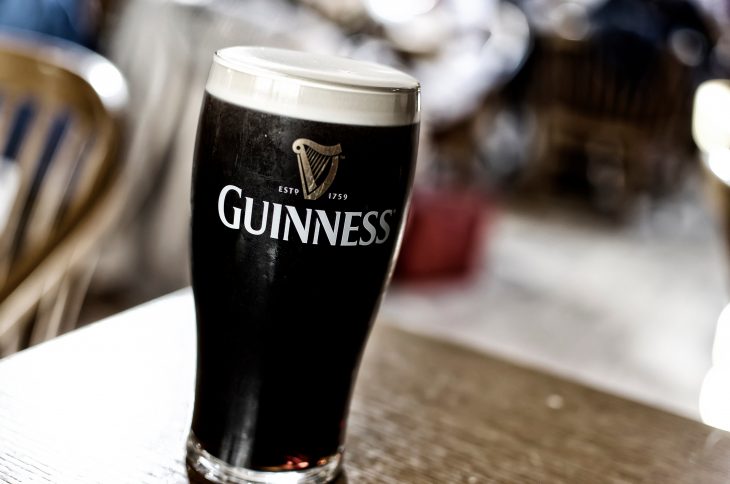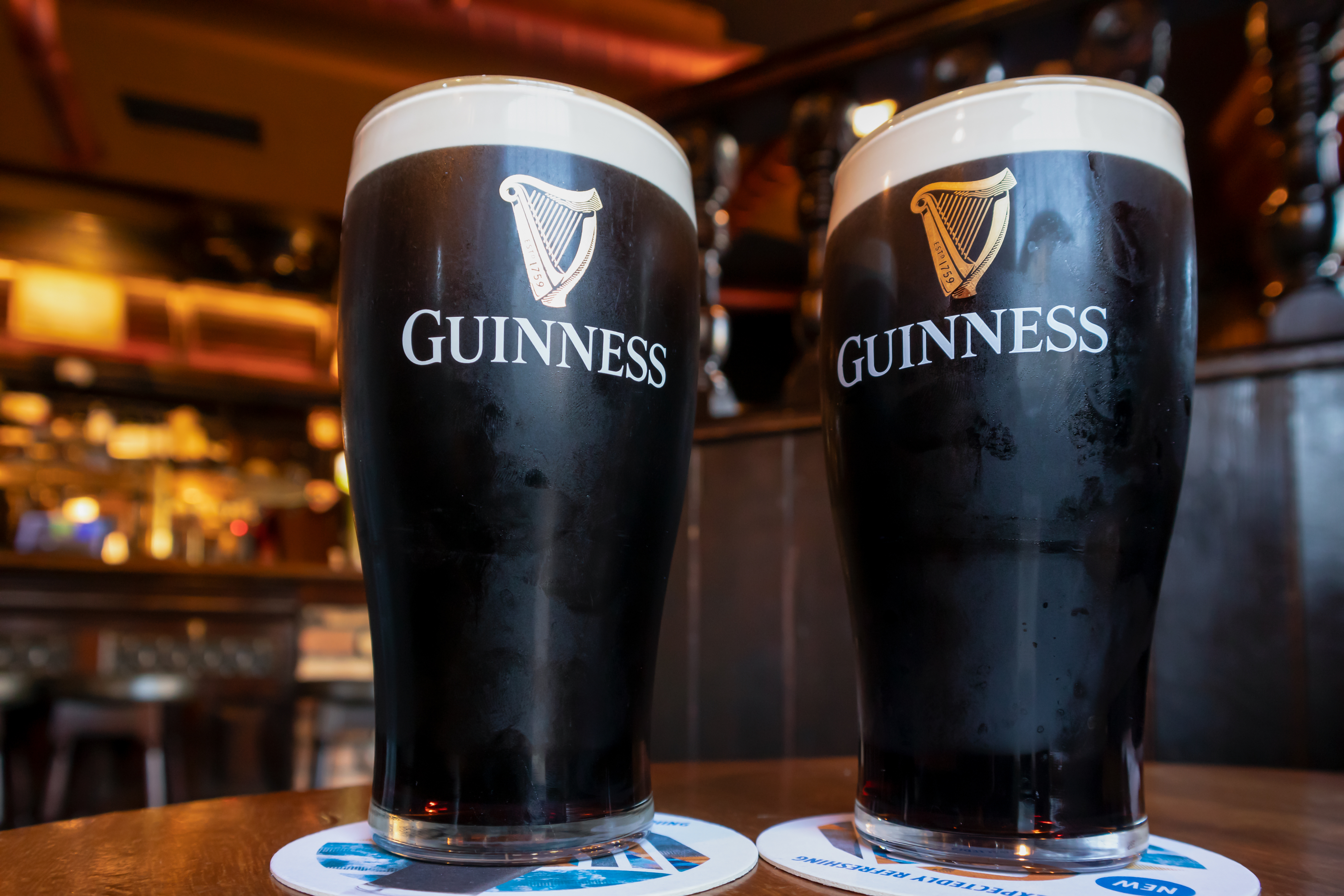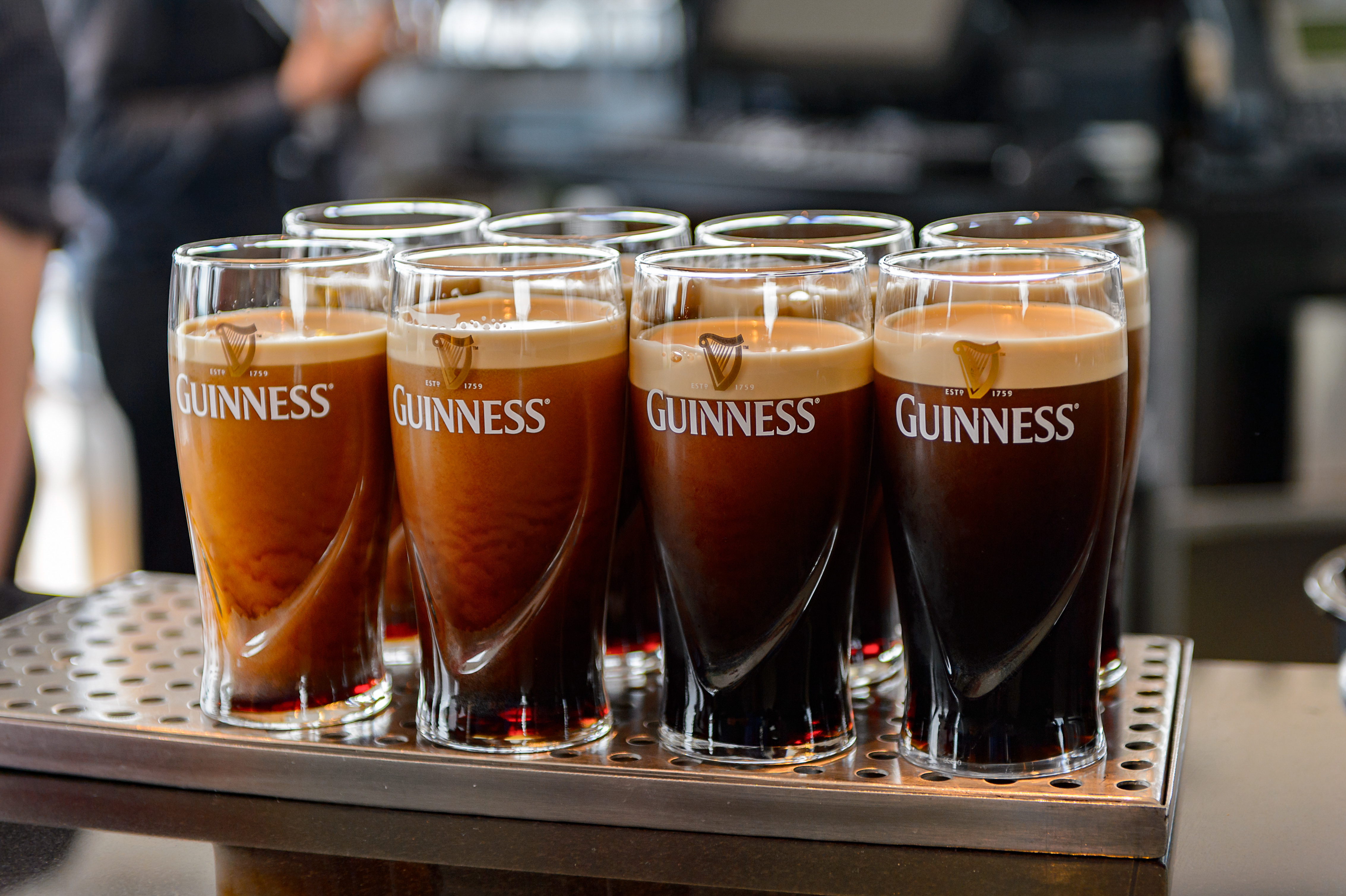
Guinness is a renowned and iconic Irish stout that has captured the hearts and taste buds of beer enthusiasts around the world. Known for its distinctive dark color, creamy texture, and rich flavor, Guinness holds a special place in the hearts of beer connoisseurs. In this article, we will explore the fascinating world of Guinness and uncover 18 intriguing nutrition facts about this beloved brew. From its calorie content to its unique nutrient profile, we will delve into the nutritional aspects of Guinness. Join us on this journey as we unveil the magic behind the pint.
Calorie Content
Let’s start with the basics – the calorie content of Guinness. A standard 12-ounce serving of Guinness Draught contains approximately 125 calories. It’s important to note that different variations and styles of Guinness may have slightly different calorie counts.
Carbohydrates
Carbohydrates are a fundamental component of beer, providing both flavor and body. A typical serving of Guinness contains around 10 grams of carbohydrates. These carbohydrates come from the malted barley used in the brewing process.
Protein
Surprisingly, Guinness is relatively high in protein compared to many other beers. A 12-ounce serving of Guinness packs in about 1.5 grams of protein. While it may not be a significant source of protein in your diet, every little bit counts!
Dietary Fiber
Yes, you read that right – Guinness contains a small amount of dietary fiber. In a 12-ounce serving, you’ll find approximately 0.7 grams of fiber. This may not seem like much, but it’s a pleasant surprise for those looking to boost their fiber intake.
Fat Content
When it comes to fat, Guinness is quite low. A pint of Guinness contains less than 1 gram of fat, making it a relatively lean option among alcoholic beverages. It’s worth noting that the fat content may vary slightly depending on the specific Guinness variant.
Alcohol Content
Now, let’s discuss the alcohol content of Guinness. The standard Guinness Draught has an alcohol by volume (ABV) of around 4.2%. However, different Guinness variants, such as Guinness Extra Stout or Guinness Foreign Extra Stout, may have higher alcohol percentages.

Antioxidants
One of the fascinating aspects of Guinness is its antioxidant content. Studies have found that Guinness contains a significant amount of antioxidants, particularly in its darker varieties. These antioxidants, known as phenols, are believed to have potential health benefits when consumed in moderation.
B Vitamins
Guinness is often touted for its rich nutritional profile, including its B vitamin content. It contains several B vitamins, including B1 (thiamin), B2 (riboflavin), B3 (niacin), B6, and B9 (folate). These B vitamins play essential roles in energy metabolism and overall health.
Iron
One of the notable nutritional benefits of Guinness is its iron content. It contains a moderate amount of iron, with approximately 0.3 milligrams per 12-ounce serving. While this may not meet your daily iron requirements, it can contribute to your overall iron intake when enjoyed in moderation.
Magnesium
Magnesium is an essential mineral that supports various bodily functions, including muscle and nerve function, energy production, and bone health. Guinness contains a small amount of magnesium, providing a touch of this vital mineral in each pint.
Potassium
Potassium is an electrolyte that helps regulate fluid balance, nerve function, and muscle contractions. While Guinness is not particularly high in potassium, it does contain a small amount, contributing to your overall potassium intake.
Silicon
Silicon is a trace mineral that plays a role in bone health and connective tissue formation. Guinness is often praised for its silicon content, with studies suggesting that the silicon in beer may be more easily absorbed by the body than other dietary sources.

Heart Health
Moderate beer consumption, including Guinness, has been associated with potential cardiovascular benefits. Some studies suggest that the antioxidants and flavonoids found in beer, particularly in darker varieties like Guinness, may have a positive impact on heart health. However, moderation is key, as excessive alcohol consumption can have adverse effects.
Nitrogen Infusion
Guinness is famous for its creamy texture and cascading bubbles, which are achieved through a unique nitrogen infusion process. Nitrogen gas is used in addition to carbon dioxide during the carbonation process, resulting in a velvety mouthfeel and visually captivating pint.
Gluten Content
For those with gluten sensitivities or celiac disease, it’s important to consider the gluten content of beer. Guinness Draught, as well as some other Guinness varieties, is not gluten-free and contains gluten derived from barley. However, Guinness offers a gluten-free alternative called “Guinness Nitro IPA,” which is brewed with gluten-free ingredients.
Enjoyment in Moderation
While Guinness offers some intriguing nutritional components, it’s essential to consume it in moderation. Excessive alcohol consumption can lead to health issues, so it’s important to enjoy Guinness responsibly and in accordance with recommended guidelines.
Responsible Drinking
When indulging in a pint of Guinness, it’s crucial to prioritize responsible drinking. Always be aware of your alcohol tolerance, follow local laws and regulations, and avoid drinking and driving. The enjoyment of Guinness is best paired with responsible behavior and a focus on the social and convivial aspects of sharing a drink.
Cultural Significance
Beyond its nutritional aspects, Guinness holds significant cultural and historical value. It is intertwined with Irish heritage and has become an emblematic symbol of Irish tradition and conviviality. Enjoying Guinness is not just about the beverage itself; it’s about embracing the rich history and sense of community that surrounds it.
Conclusion
As we conclude our exploration of Guinness nutrition facts, we hope you’ve gained a deeper understanding of the nutritional composition and unique qualities of this beloved stout. From its surprisingly rich nutrient profile to its cultural significance, Guinness continues to capture the hearts of beer enthusiasts worldwide. Remember, savoring a pint of Guinness is not just about the drink; it’s about embracing the traditions, camaraderie, and moments of conviviality that come with it. So raise your glass, appreciate the magic, and enjoy Guinness responsibly.
Was this page helpful?
Our commitment to delivering trustworthy and engaging content is at the heart of what we do. Each fact on our site is contributed by real users like you, bringing a wealth of diverse insights and information. To ensure the highest standards of accuracy and reliability, our dedicated editors meticulously review each submission. This process guarantees that the facts we share are not only fascinating but also credible. Trust in our commitment to quality and authenticity as you explore and learn with us.


